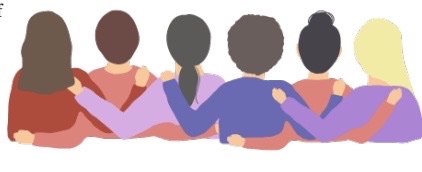The problem with cliques
People often romanticize the “good old days” when referring to their carefree, party days of high school. However, many overlook the “clique” atmosphere they once had to deal with in order to fit in. A clique is a group of close friends who spend lots of time together and prohibit others from joining their group. Because teens often struggle with figuring out where they belong and identifying who they are as a person, cliques can be appealing, as they make people feel like they’ve found “their people.” However, clique culture harms our society because it creates a divide between different levels of social hierarchy. In order to get rid of cliques, we need to become more inclusive and open to the idea of meeting a variety of people.
First off, it’s important to discuss how cliques form. A study from The Journal of Adolescent Research, conducted by researchers Rachel Gordan and Anna Dworzecka at the University of Illinois broke high school social groups down into 12 stereotypes. Some examples of these stereotypes were “Jocks,” “Druggie/stoners,” and “Brains.” When these groups join together, the people in them stop seeking out other friends with different interests. Because all of their friends have similar personalities, they assume that those are the only kind of people they will get along with. They then write everyone else off as not “their people.”
However, this mentality is detrimental because humans need to branch out in order to become their true authentic selves and be exposed to new ways of thinking. One example of this in my own life is when I moved to a new state. Moving exposed me to different types of people which helped me learn how to talk to people with whom I don’t necessarily share the same beliefs. If I hadn’t gone out of my comfort zone, I never would have grown my social skills and patience.
In spite of the benefits of social inclusion, the pressure to stay loyal to a friend group and social anxiety can make it a challenging thing to do. One way to include people is to avoid assumptions by making sure everyone feels heard. In order to avoid assumptions you must first assess what your assumptions about this certain type of person are. Then, as long as you’re open to meeting new people, you can challenge your assumptions by listening to what the other person has to say. If you’re in a group setting and you notice one person struggling to get a word in, ask them what their thoughts are on the topic of discussion. Finding little ways to include people and get to know others will overall make your community a better place.
Clique culture hurts our society because it causes people to stay in their comfort zone and limits people’s personal growth. It’s important to interact with various people because it helps people learn more about themselves and become exposed to new beliefs and ideas. In order to challenge clique culture we must retrain our brains to value inclusion by talking to new people, avoiding assumptions, and listening.



